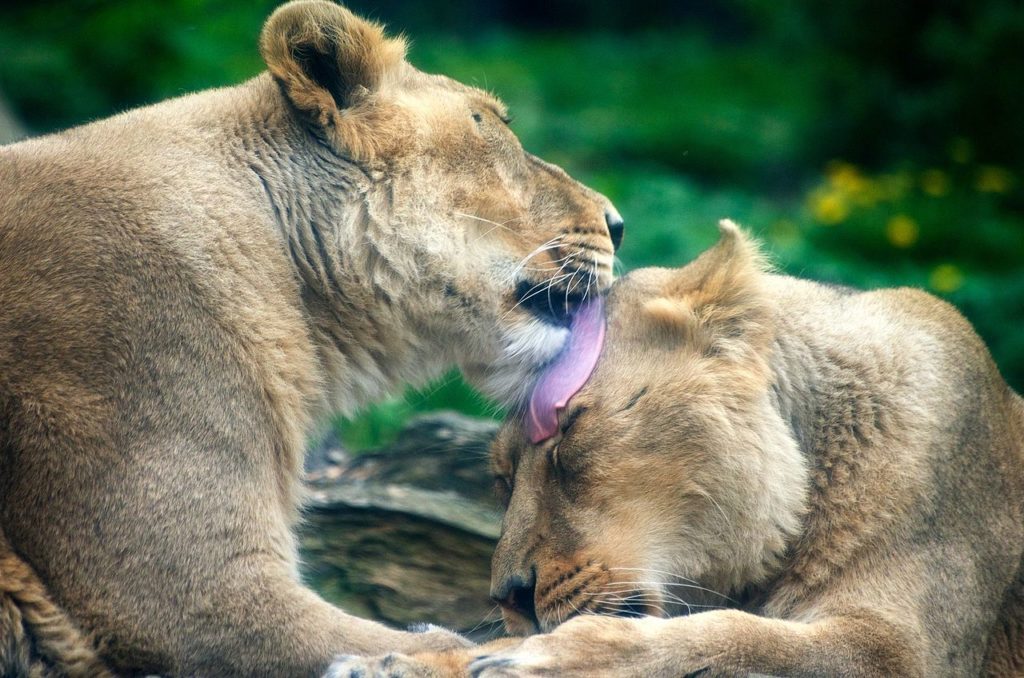Zoology and zoo-keeping are very different fields. Zoology concentrates on the scientific study of animals whereas zoo-keepers look after animals. As a result, if you are applying for a course, it is important not to get them mixed up!
Zoology covers everything from molecular makeup to the reasons behind the survival of certain species and the extinction of others. Zoo-keepers are more concerned with the day to day care of the animals. They are also responsible for managing and maintaining a zoo or wildlife park.
Education
University College Cork, Trinity College Dublin and University College Dublin all have dedicated zoology degrees. In your first year, you’ll study subjects such as:
- Biology
- Chemistry
- Mathematics
- Habitats and Ecosystems
As you progress you will cover subjects like:
- Plant and Animal Genetics
- Fundamentals of Ecology
- Biology of Marine Mammals
- Genetics
The subjects covered highly depend on the course you choose. Other similar courses to consider include Veterinary Science, Environmental Science, and Agricultural Science.
While some zoo-keepers have degrees in zoology, it is not always necessary. According to Dublin Zoo, you will need a Zoo Animal Management qualification. These can be done through the European Association of Zoos and Aquaria (EAZA) and the World Association of Zoos and Aquariums (WAZA). However, it is worth noting that there is fierce competition for jobs. A qualification is no guarantee you’ll get work.
Options after Qualification
There are a number of careers you could choose from. Specialised zoology and zoo-keeping roles are not very widespread in Ireland. As a result, some graduates move abroad to pursue their careers. Others may decide on academic, teaching or research careers either in Ireland or overseas.
There are a wide variety of jobs in the agriculture, fish farming, environmental science, wildlife conservation and environmental management sectors.
The Work
Zoologists study animals for a living. This can mean travelling long distances to remote locations to observe animals in their natural habitat, or it can mean spending years in a laboratory. Animal breeding patterns, disease resistance or how animals adapt to new habitats are all possible zoology research topics.
Zoologists can also work as consultants for zoo managers, aid agencies, national governments, pharmaceutical companies, environmental managers, animal feed manufacturers and even the media.
Zoo-keepers generally work closely with the animals in a zoo or wildlife park. Therefore, a typical day involves cleaning out enclosures, preparing food, and looking after the animals’ bedding and water needs. Zoo-keepers monitor and record details of the animals’ health, diet and behaviour, while also answering queries from visitors and ensuring that compounds are secure. They may work closely with zoo managers as well as other experts on conservation or reproduction. Many zoo-keepers specialise in one particular species.
Personal Qualities & Work Environment
While zoologists are scientists, zoo-keepers work closely with animals. In both a certain amount of detachment is necessary. You should also be proficient in maths and science to study zoology, while aspiring zoo-keepers should be attentive, observant and reliable. Both career paths also require good communication skills.
Most modern zoologists spend a good deal of their time in a laboratory environment. Zoo-keepers usually spend most of their time on-site at the zoo or wildlife park where they work.
Jargon
Range: The geographic area as well as spatial distribution in which a species is normally found
Beta Diversity: A measure of the variety of organisms in a region
Extinct: A species that has died out completely, e. g. the dodo, a clumsy, flightless bird from the Indian Ocean, hunted to extinction in the 17th century
Evolution: The way species adapt and change to suit their environment over long periods of time
Ornithology: The study of birds












Hi, my daughter did not reach criteria for zoology in ucd, she is looking at animal management and science HI in bife. A 2 year course. However on her induction day the tutor said it woukd be very unlikely she can apply for a place in ucd afterwards. It’s more for veterinary nursing. So there’s devastation here. Any advice woukd b grateful. Thank yiu. You